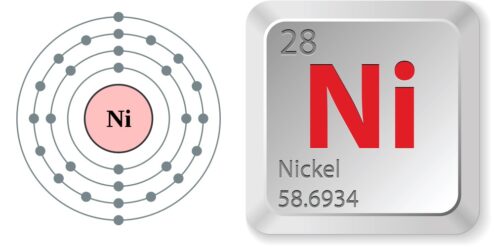Nickel is a naturally occurring element found in various foods and the environment. While it is essential in trace amounts, excessive consumption can lead to nickel allergy, a common condition that affects about 10-20% of the population. This article aims to explore the nickel content in eggs, its impact on health, and how to manage its intake.
Understanding Nickel Allergy and Diet
Nickel allergy is a common form of contact dermatitis, where the immune system reacts to the nickel in certain items. Symptoms can range from mild skin rashes to severe allergic reactions. However, it’s not only through contact that nickel can affect us. It’s also present in various foods, and excessive consumption can lead to systemic nickel allergy syndrome (SNAS), characterized by chronic inflammation and gastrointestinal issues.
The amount of nickel in foods can vary greatly, depending on factors such as soil content, processing, and cooking methods. Some foods are naturally high in nickel, including whole grains, nuts, and certain types of fish. However, even foods with lower nickel content can contribute to the overall dietary nickel load if consumed in large amounts.
For those with nickel allergy, following a low-nickel diet can help manage symptoms. This involves limiting or avoiding foods high in nickel and being mindful of nickel content in cookware and utensils. However, it’s important to remember that everyone’s tolerance to nickel can vary, and what works for one person may not work for another.
The Nutritional Profile of Eggs
Eggs are a highly nutritious food, packed with high-quality protein, vitamins, and minerals. They are particularly rich in vitamin B12, vitamin D, and choline, a nutrient essential for brain health. Additionally, eggs are a good source of antioxidants, including lutein and zeaxanthin, which are important for eye health.
Despite their high nutritional value, eggs have been a subject of controversy due to their cholesterol content. However, recent research suggests that dietary cholesterol does not have a significant impact on blood cholesterol levels for most people. Instead, saturated and trans fats are the main dietary culprits affecting blood cholesterol.
Eggs are also versatile and easy to include in a variety of meals, making them a staple in many diets. However, for those with food allergies or specific dietary needs, it’s important to consider the potential allergens and nutrients in eggs, including nickel.
Are Eggs High in Nickel? Unveiling the Facts
So, are eggs high in nickel? The answer is no. Compared to other foods, eggs have a relatively low nickel content. However, like any food, the actual nickel content can vary depending on factors such as the hen’s diet and the soil where the feed was grown.
While eggs are not a major source of dietary nickel, they can contribute to the overall nickel load if consumed in large amounts, especially in individuals with nickel allergy. Therefore, it’s important to consider your overall diet and not just individual foods when managing nickel intake.
Despite their low nickel content, eggs can still cause allergic reactions in some people. This is typically due to proteins in the egg, rather than nickel. Egg allergy is most common in children but can occur at any age.
The Impact of Nickel in Eggs on Health
While eggs are not a major source of nickel, it’s still important to consider their potential impact on health. For most people, the nickel content in eggs is unlikely to cause any issues. However, for those with nickel allergy or SNAS, even small amounts of dietary nickel can trigger symptoms.
Symptoms of nickel allergy can include skin rashes, itching, and in severe cases, anaphylaxis. In the case of SNAS, symptoms can include digestive issues, chronic inflammation, and fatigue. Therefore, managing nickel intake is crucial for those with these conditions.
On the other hand, completely avoiding nickel is neither possible nor advisable, as it is a trace element necessary for certain bodily functions. The key is to find a balance that allows for adequate nutrition without triggering symptoms.
Managing Nickel Intake: Tips and Strategies
Managing nickel intake involves more than just avoiding high-nickel foods. It’s also important to consider the overall diet, cooking methods, and even the cookware used. Here are some strategies to help manage nickel intake:
-
Follow a balanced diet: A balanced diet can help ensure you’re getting all the necessary nutrients without overloading on nickel. This includes a variety of fruits, vegetables, lean proteins, and whole grains.
-
Limit processed foods: Processed foods can contain added nickel and should be limited.
-
Use non-nickel cookware: Stainless steel and nickel-plated cookware can leach nickel into food, especially acidic foods. Opt for glass, ceramic, or iron cookware instead.
-
Drink plenty of water: Drinking water can help flush out excess nickel from the body.
Alternatives to Eggs for a Low-Nickel Diet
If you’re looking to reduce your nickel intake, there are plenty of egg alternatives available. For baking, applesauce, mashed bananas, and yogurt can be used as egg substitutes. For cooking, tofu can be used to make scrambles or omelets.
Other protein sources that are low in nickel include poultry, fish, and dairy. However, it’s important to remember that everyone’s tolerance to nickel can vary, and what works for one person may not work for another.
In conclusion, while eggs are not high in nickel, they can contribute to the overall nickel load if consumed in large amounts. For those with nickel allergy or SNAS, managing nickel intake is crucial. This involves a balanced diet, limiting processed foods, using non-nickel cookware, and staying hydrated. Remember, everyone’s tolerance to nickel can vary, and it’s important to find a balance that works for you.
Per approfondire:
- The National Institutes of Health (NIH): Provides comprehensive information on various health topics, including nickel allergy.
- The American Academy of Dermatology (AAD): Offers resources on skin conditions, including nickel allergy.
- The Mayo Clinic: Provides in-depth articles on various health topics, including food allergies and nickel allergy.
- The Food and Drug Administration (FDA): Offers information on food safety and nutrition, including food allergens.
- The European Food Safety Authority (EFSA): Provides scientific advice on food safety, including dietary nickel.


